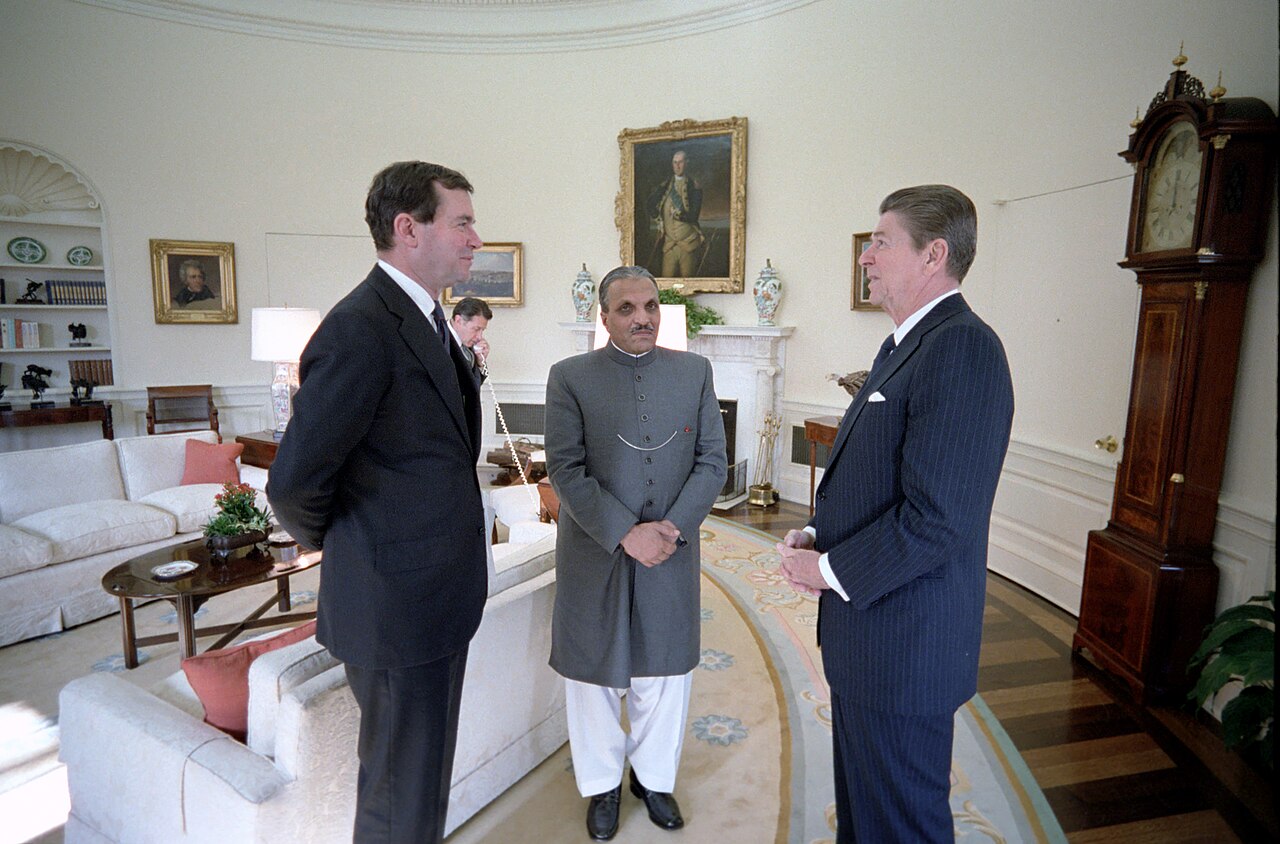When the Bell helicopter carrying Iran’s President and Foreign Minister crashed earlier this week, several Iranian citizens and military watchers speculated that Israel could be behind the assassination. This was not the first time Israel was ‘accused’ of the murder of a President.
From India To Mongolia — Six Wars That China Will Fight To Regain “Lost Glory” By 2060: Chinese State Media
An investigating team sent to the crash site obtained significant evidence regarding the causes of the crash. According to the investigation report, the helicopter had remained on its predetermined course and had not deviated from the flight route.
The investigation stated that the pilot of the downed helicopter had communicated with the other two aircraft in the President’s convoy 15 minutes before the accident. The helicopter later crashed into the mountain and immediately caught fire on impact.
The report also noted that the examination of the wreckage of the helicopter revealed that there were no gunshots and no evidence of any external factor in the crash. While this seems to be an early finding, the Armed Forces said that the inquiry was still underway and that the public would be informed of any new developments.
That essentially rules out the suspicion that Iranian President Ebrahim Raisi was assassinated by Iran’s primary adversary in the region, Israel. In the aftermath of the crash, social media was rife with conspiracy theories that either Israel or the United States had planned to assassinate the Iranian hardline President.
🚨🇮🇷 IRAN RELEASES FIRST REPORT ON PRESIDENT RAEISI'S FATAL HELICOPTER CRASH
The report clarifies that the helicopter was following its predetermined flight path when it crashed into a mountainous region, subsequently catching fire. Initial investigations have ruled out any… pic.twitter.com/rzvFAlSDCc
— Mario Nawfal (@MarioNawfal) May 24, 2024
Several pro-Iranian social media users even wondered whether the crash was Israel’s retaliation against an Iranian aerial strike on Israel last month. Some others speculated that it could be an Israeli ploy to send a warning message to the Iran-backed militias that have continued to attack Israel in the wake of the latter’s invasion and bombing of Gaza.
Israel was suspected of being behind the crash also because the Iranian President, who was seen as Khamenei’s heir apparent and protégé, criticized Israel last month, stating that “the Zionist Israeli regime has been committing oppression against the people of Palestine for 75 years.”
The footage shows the moment the president's helicopter wreckage was found by the volunteer drone team of the Relief & Rescue Organization of the Red Crescent.#Iran #EbrahimRaisi pic.twitter.com/c4eMGhJ91f
— Rizwan Haider (@ItsRizwanHaider) May 20, 2024
One social media user wrote on Platform X: “Iran President Ebrahim Raisi died in a helicopter crash. I suspect this was an assassination. We will see if Iran will investigate thoroughly. I suspect Israel is behind this.”
Another netizen was more unforgiving in his assertion: “Now that it’s confirmed that Iranian President Ebrahim Raisi and Foreign Minister have died in a helicopter crash. Iran must investigate Mossad’s role in it, and if it finds something involving #Israel, they need to pay back with interest.”
The report stated that “with the assistance of drones, the exact location of the incident was identified.” It further noted that “search and rescue operations had to continue until nightfall and then throughout the night due to complications of the region, fog, and low temperature.”
US Desperate For Military Base In Bangladesh; Conspires To Carve New State From B’Desh & Myanmar: PM
The report finally said no suspicious issue had surfaced in the watchtower’s interactions with the flying crew. Thus, the report has essentially absolved Israel and its spy agency, Mossad, of any potential wrongdoing—at least for now.
On its part, Israel alleges that Iran is a patron of the so-called “axis of resistance,” a network of armed groups in the Middle East that includes Hamas, the Palestinian organization, and has engaged in conflict with Israel.
Although the Israeli government did not make an official declaration about the crash, an Israeli official denied the government’s involvement in it.

The Iranian report means that the Israeli official stands vindicated. However, this is not the first time that Israel has been under the scanner for the assassination of a head of state.
Several years ago, in a different part of the world, a head of the state was killed, and fingers were pointed at Mossad, but like the Iranian case, no wrongdoing was established.
EurAsian Times takes you for a walk down lanes of history.
When Israel Was Accused Of Killing Pakistan’s President
On August 17, 1988, Muhammad Zia-ul-Haq, the sixth president of Pakistan, died in an air crash at Bahawalpur. He was accompanied by his close aide, Akhtar Abdur Rehman, who also died in the crash, along with American diplomat Arnold Lewis Raphel and 27 others.
A few hours later, Ghulam Ishaq Khan, the newly appointed Senate Chairman, formally announced Zia’s passing over Radio Pakistan and Pakistan Television Network. Almost a million people attended Zia’s state funeral, which was held in the Islamabad Faisal Mosque.
Two separate investigations were launched: by Pakistan and the United States. Both had different conclusions.
The media was informed by Inter-Services Intelligence Director-General Hamid Gul that Zia’s murder was the result of a plot involving a “foreign power.”
Several conspiracy theories were also floated, and the death was classified as one of the most mysterious to have occurred in Pakistan. At the time and in the aftermath of the incident, fingers were pointed at both the Soviet Union and the United States.

Gen. Akhtar Abdur Rehman, the Chairman of the Joint Chiefs of Staff Committee and the former head of the country’s spy agency, Inter-Service Intelligence (ISI), was among the dead, adding credence to the theory that the Soviet Union was involved in the plane crash. Abdur Rehman had led the Afghan mujahedin in their fight against the Soviet Union.
Another conspiracy theory blamed the US. Theories about the United States engineering the incident gained momentum when early reports revealed that the American diplomat Raphel had only been called up at the last minute to join the aircraft. Raphel’s widow, however, claimed that her husband was to travel with Zia on the plane and that General Wassom was only added at the last minute.
The most interesting conspiracy theory came several years later, in 2005. It said Mossad had carried out the assassination.
Chabahar Port: Why US May ‘Secretly Support’ India-Iran Connectivity Deal Despite Threatening Sanctions
Former US ambassador to India, John Gunther Dean, wrote in the fall 2005 issue of World Policy Journal that the assassination of Zia was planned by the Israeli intelligence agency Mossad in retaliation for Pakistan’s development of a nuclear weapon to counter India and to stop Zia, an influential Muslim leader, from continuing to influence US foreign policy.
EurAsian Times had carried a detailed report about Israel’s opposition to Pakistan’s nuclear program and Israeli attempts at derailing it (you can read it here.)
On that fateful day, Zia-ul-Haq was aboard a C-130 Hercules aircraft, returning from a military demonstration in Bahawalpur, Pakistan. The crash killed all 31 people on board. The official investigation attributed the crash to mechanical failure, but the sudden and tragic nature of the event led to widespread speculation about possible foul play.

John Gunther Dean, who had a distinguished career in the U.S. Foreign Service, made explosive allegations regarding Zia-ul-Haq’s death. Dean suggested that the Israeli intelligence agency Mossad might have played a role in the plane crash. His theory was based on several factors:
- Geopolitical Context: Dean pointed out the complex geopolitical environment of the time. The Soviet-Afghan War was in full swing, and Pakistan, under Zia-ul-Haq, was a critical ally of the United States in supporting the Afghan Mujahideen against Soviet forces. Dean speculated that Israel might have had strategic reasons to destabilize Pakistan, given its support for Arab nations and the potential threat a nuclear-armed Pakistan could pose to Israel.
- Technical Expertise: Dean believed that Mossad had the capability to carry out such a sophisticated operation, involving tampering with an aircraft’s mechanisms to cause a crash. He mentioned that the Israelis had the technical know-how and operational reach to execute such an attack discreetly.
- Previous Precedents: Dean also referenced past instances where Mossad had allegedly carried out covert operations against perceived enemies of Israel. He suggested that Zia-ul-Haq, with his staunch Islamic policies and support for anti-Israel elements, could have been seen as a significant threat by the Israeli state.
Dean’s allegations were highly controversial and received mixed reactions. Many in the diplomatic and intelligence communities dismissed his claims as speculative and lacking concrete evidence. Critics argued that Dean’s theory was based more on circumstantial evidence and geopolitical conjecture rather than solid proof.
However, Dean’s allegations did find some resonance among those who were already skeptical of the official explanations provided by the Pakistani and American authorities. The lack of a definitive cause for the crash and the high-profile nature of the victims kept conspiracy theories alive, and Dean’s assertions added another layer to the mystery.
- Contact the author at sakshi.tiwari9555 (at) gmail.com
- Follow EurAsian Times on Google News




